
Arugula is a leafy green vegetable with a peppery, bitter taste. It’s often used in salads, but can also be cooked like spinach. Arugula is high in Vitamins A and C, as well as antioxidants. It’s a good source of fibre, potassium, and calcium.
While it may not sound appetising to some, arugula can be a delicious addition to your diet.
So why should you try arugula? Well, it’s healthy, flavorful, and versatile!
Give it a try the next time you’re looking for something new to add to your salad. You won’t be disappointed. Here are a few reasons why you should try arugula and what it tastes like.
Table of Contents
What Is Arugula?
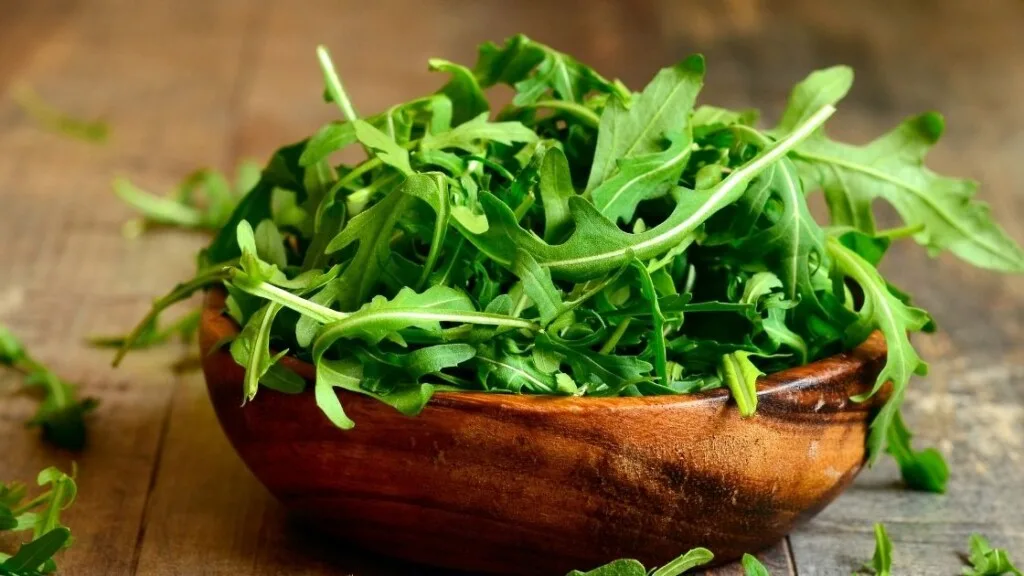
Arugula is a bitter green leafy vegetable that tastes spicy and peppery. It also resembles collard greens in texture, though it has wispy leaves like a dandelion on top of its thin stalks. When cooked, this flavorful leaf becomes mellower with less spiciness and gains some sweetness.
When buying arugula, make sure that it’s fresh. The taste and smell will be most potent when it is fresh. If you buy your salad greens pre-cooked or bagged, they will stay longer in the fridge but will still lose their crispness rapidly.
Don’t allow them to go bad because there is no telling what will happen if these vegetables start bacterial growths—it might cause an illness that will leave you feeling rather ill.
Arugula has that peppery taste to give any salad an exciting twist.
The peppery flavor will give it that extra kick, without being overwhelming or spicy. It’s a perfect vegetable to add to the salad for those who do not approve of anything bland.
What Does Arugula Look Like?
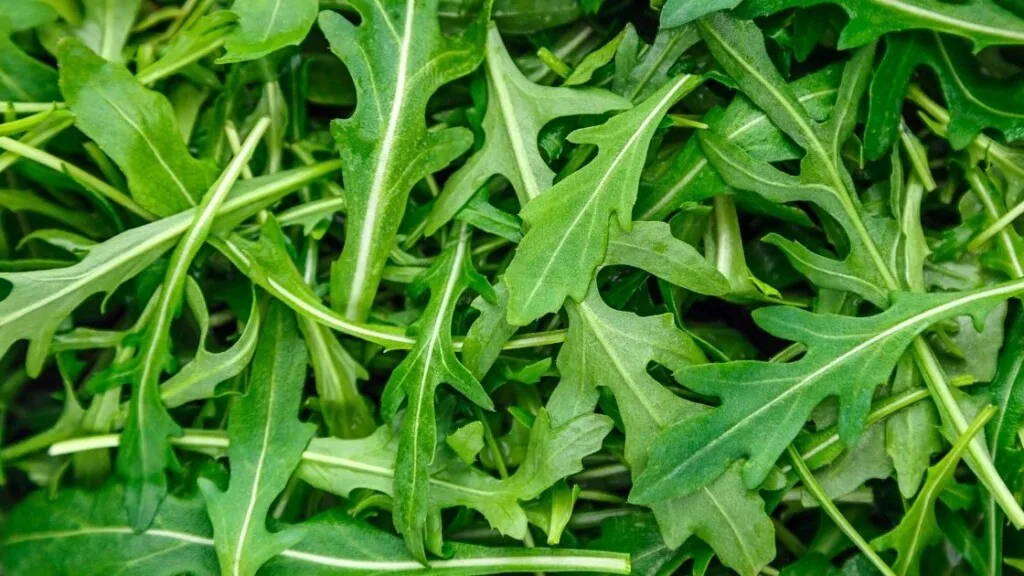
Arugula is an ancient Roman favorite that has been enjoyed for centuries. The leaves can be small and soft, one or two inches long; they also come in larger varieties with dramatic outlines when grown properly- which means a more peppery taste.
Sometimes these greens will even have a hint of bitterness to them due to their high spice content. Raw arugula is similar to spinach in texture, but it has longer stalks and more delicate leaves.
Does Baby Arugula Taste More Bitter?
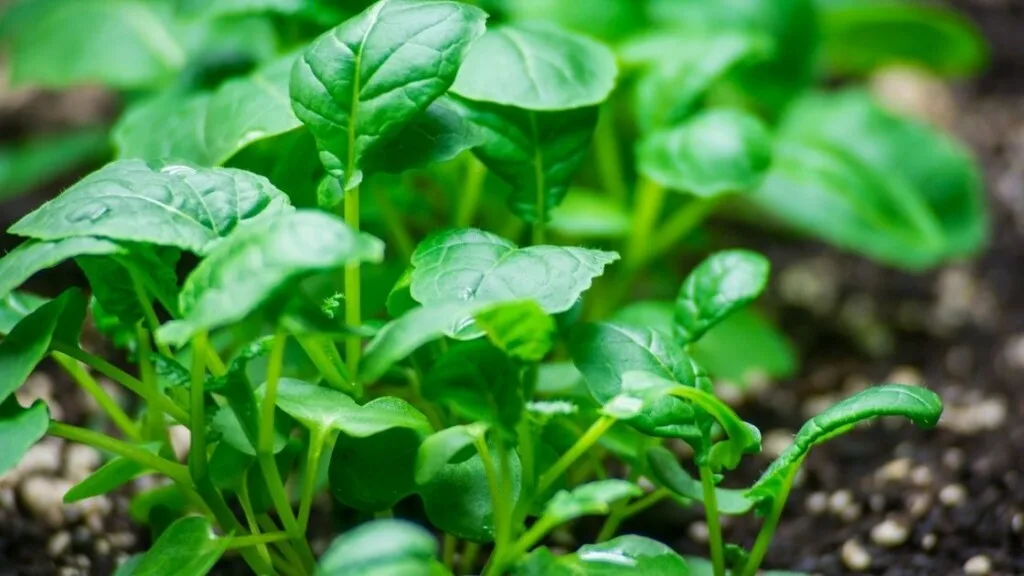
You may think the more mature it is the less spicy it would be-the truth however is the other way round. Baby arugula is less bitter than mature arugula.
With so many different types of arugula available, it’s difficult to know which one you should choose.
But if your goal is a milder flavor with less bite than mature leaves or pungency then go for baby Arugula.
The bitterest type typically comes from wild plants. You wouldn’t be able to find out the source of the plant when you are buying it from a local grocery store. Those who can directly get it from local farmers should look out for baby arugula.
When you find that your arugula is just too peppery for consumption, it’s time to add some vegetables. Chop up carrots or other fruits and greens into small pieces with a knife before tossing them in olive oil along with garlic cloves if desired.
You can saute all of these ingredients together until they are heated thoroughly – but remember not to cook over high heat because this will make the leaves taste burnt.
Lemon juice also compliments arugula, especially when used in salads.
Squeeze lemon juice on top of the salad to combat the bitterness of arugula with the sourness of lemon. The two will give your salad a distinctive fiery taste.
Signs that Your Arugula Has Gone Bad
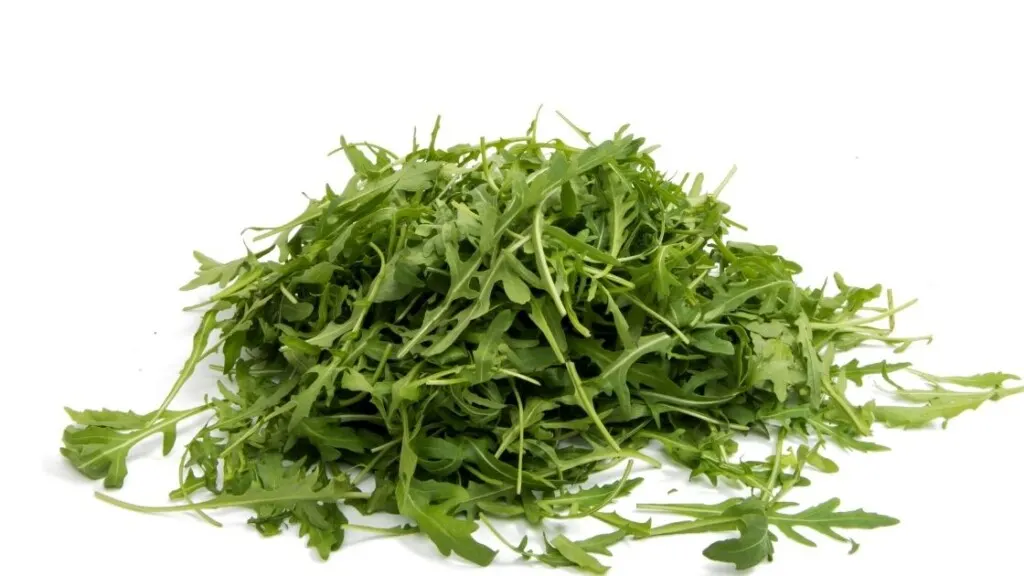
The wilting bunch of arugula will start to seem limp and dead when it’s time to say goodbye. As the leaves dry out from being too moist, they may develop dark brown or black blotches.
The smell is another great indicator of arugula’s freshness. You want it to smell good as well. It’s a wonderful thing if it smells spicy, but it’s probably on its way out if it smells sour or extremely earthy.
Margins are also something you should be watchful of. You don’t want any green margins, so make sure all that’s left are healthy-looking plants with a consistent emerald-green tint (no darker patches).
Arugula is High In Nutrients
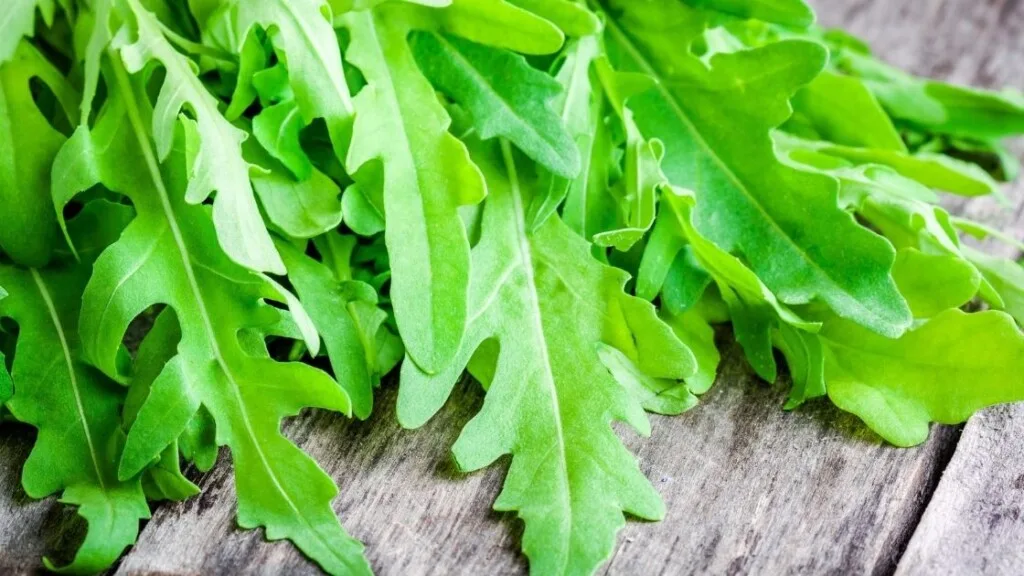
Along with fiber and phytochemicals, arugula is also high in certain nutrients which include;
If you have high blood pressure, taking a supplement with both calcium and potassium may help reduce the effects of sodium on your heart.
Calcium
It is necessary for bone health; tooth integrity (to avoid decay) as well as muscle function and nerve activity. If you have high blood pressure, taking a supplement with both calcium and potassium may help reduce the effects of sodium on your heart.
Potassium
It helps maintain normal heart rhythm by reducing fluid buildup in arteries due to its role in regulating hormones that cause swelling such as angiotensin.
Vitamin C
Arugula is rich in vitamin C or ascorbic acid. Ascorbic Acid has been called “the most powerful antioxidant” which helps fight off illness. If you are prone to catching a cold or flu, this vitamin is for you.
Folate
Folate is a B vitamin that helps support the production of DNA and other genetic material. It’s particularly important for women who are pregnant or planning to become pregnant because it can save them from iron deficiency and anemia.
Vitamin K
It is essential for healthy eyesight, but it can also have beneficial effects on other parts of your body. For example, its role in promoting cell growth and preventing cancer makes this vitamin worth taking if you’re looking to heal yourself from any illness.
Vitamin A
Vitamin A is an antioxidant that supports immune function, cell growth, and the development of the eyes. It also works to help maintain kidney health as well your lungs’ ability for oxygen absorption in order to keep you healthy.
Bottom-Line
Arugula is a great way to add flavor and nutrients to your diet. It can taste peppery or bitter, but it’s highly complimenting when used in salads with other bland vegetables.
With its many health benefits, arugula is definitely worth adding to your regular rotation of vegetables.


Leave a comment